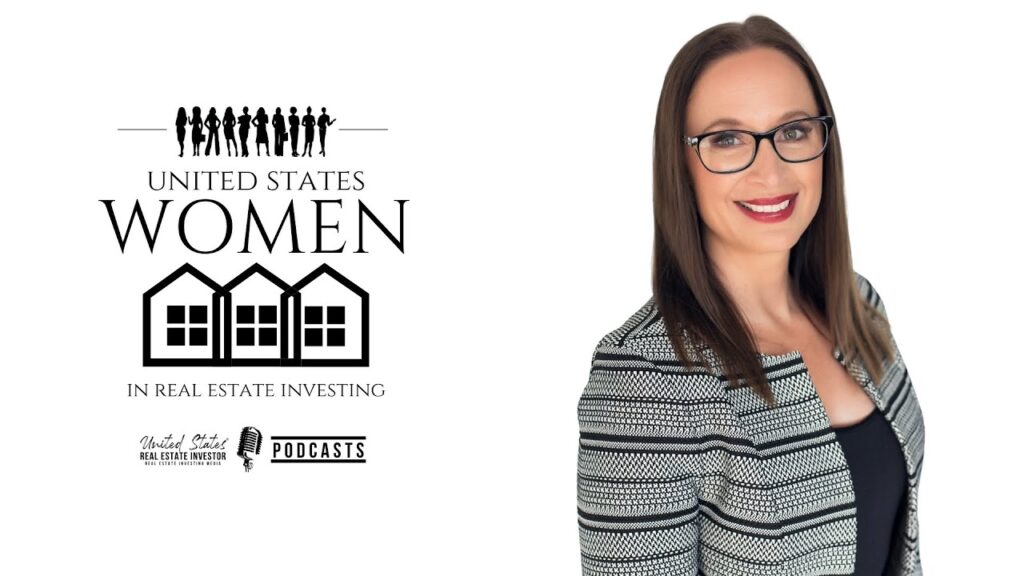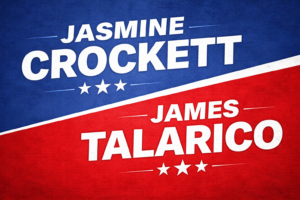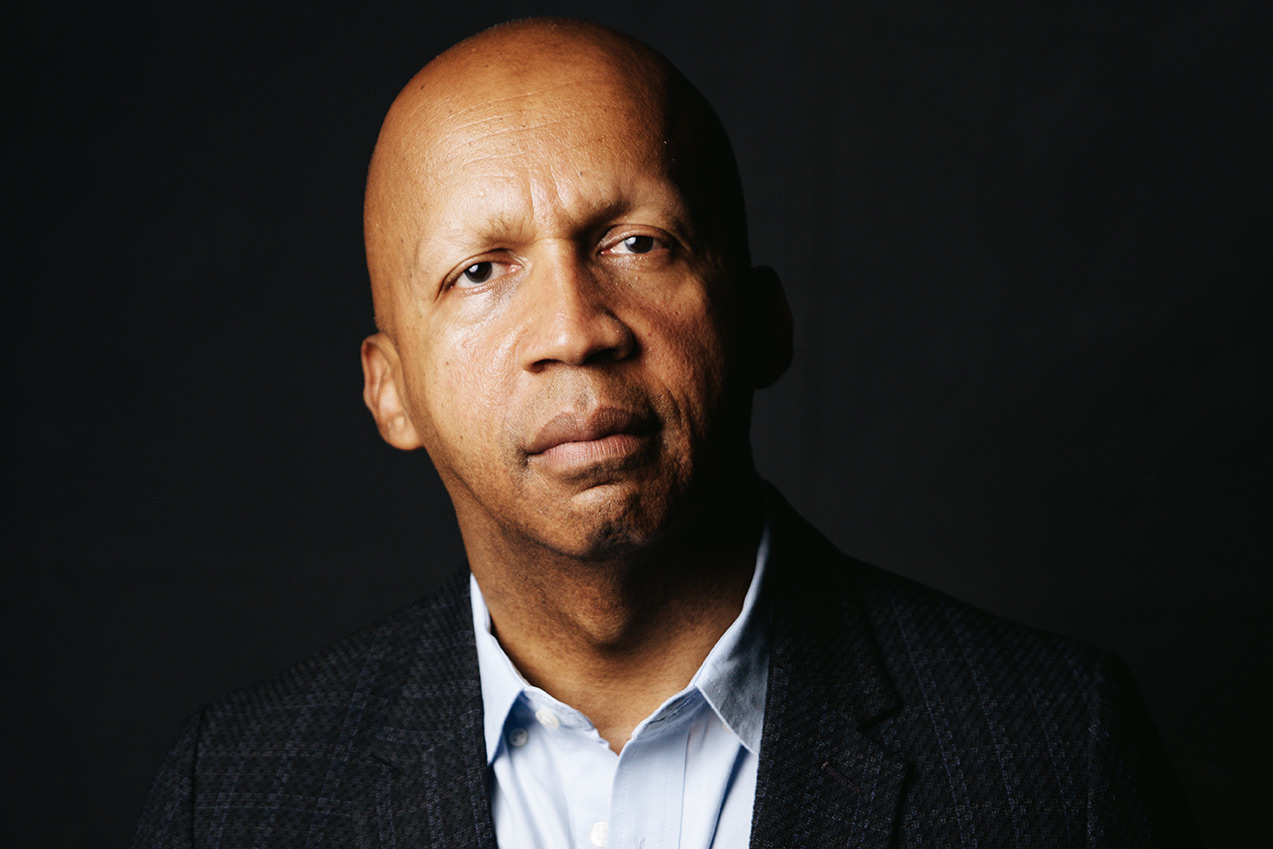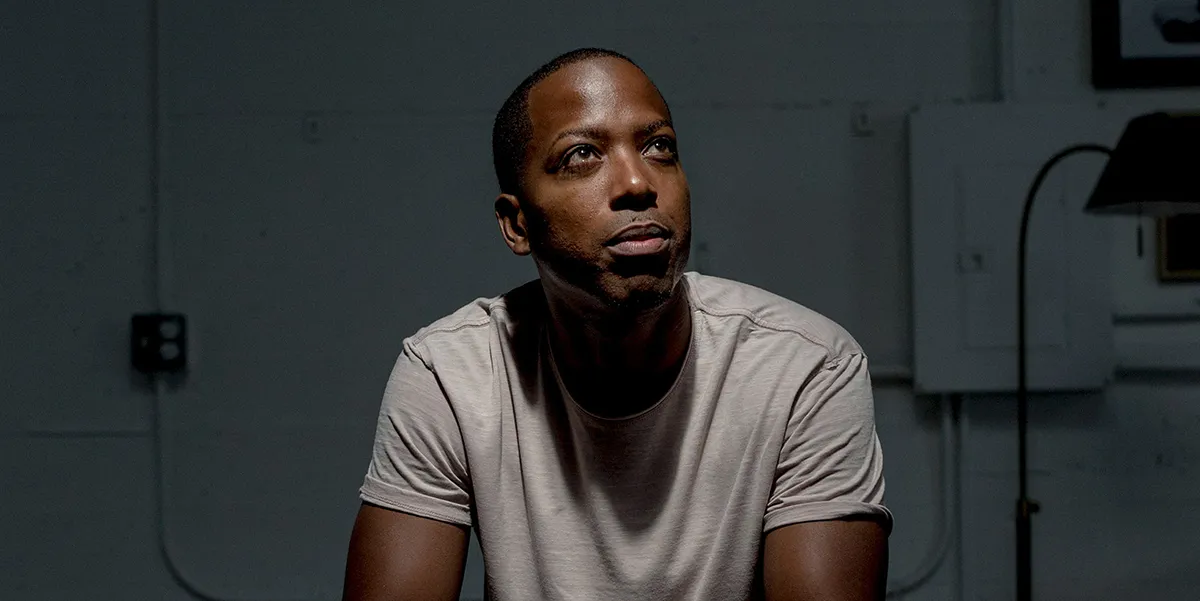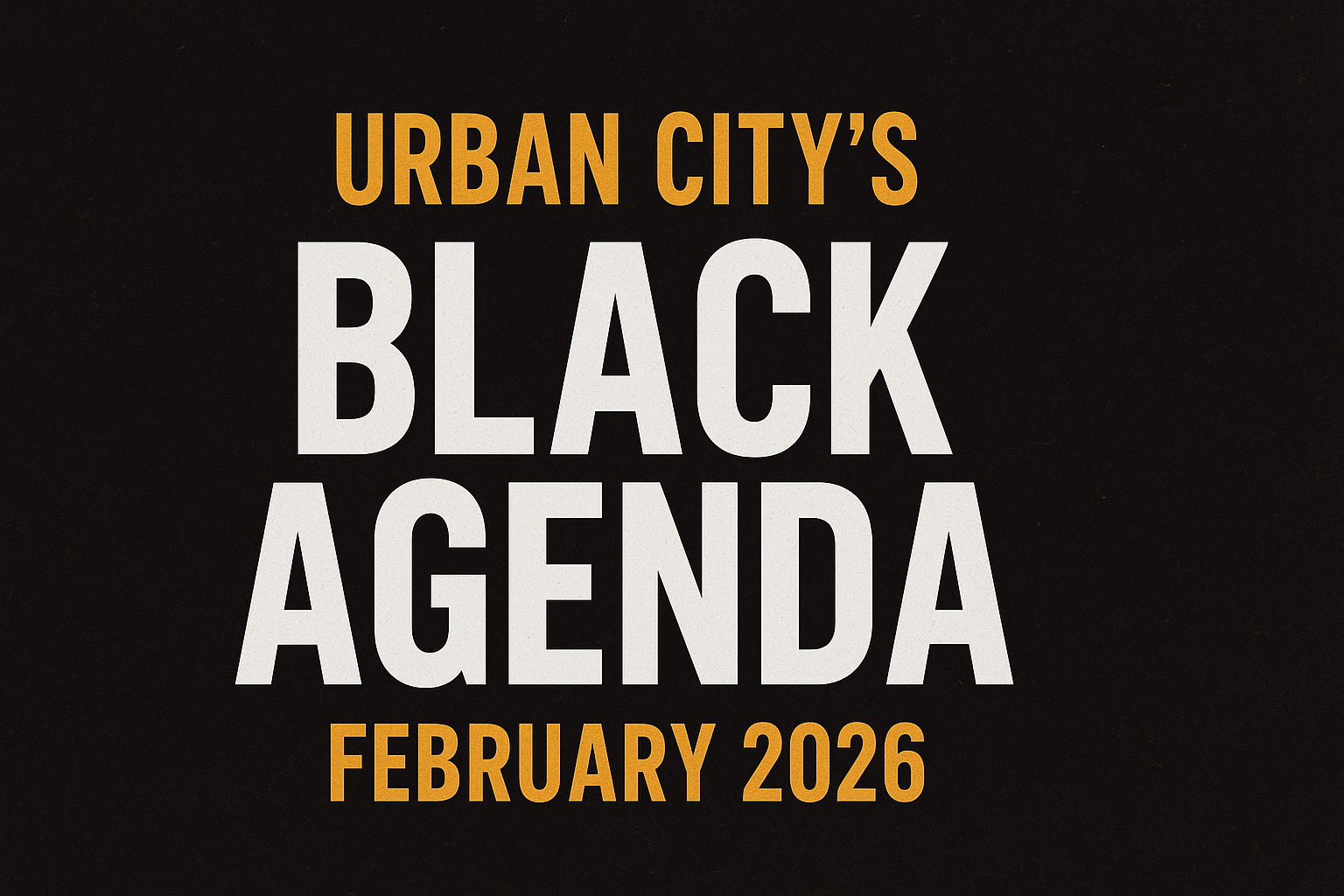PLATFORM DISCLAIMER: To continue offering high-quality insights, United States Real Estate Investor® may earn commissions from affiliate links or sponsored content. All images serve as visual inspiration only and may not represent actual people or properties.
Key Takeaways
- Fear fades when vision leads—bold decisions birth big results.
- Systems and smart outsourcing make cross-border investing not just possible, but scalable.
- Women in real estate thrive by pairing heart with hustle and strategy.
Alicia Jarrett on United States Women in Real Estate Investing with Jeune Ortiz
When you think of a successful U.S. real estate investor, you probably picture someone with boots on the ground, right here in the States.
But Alicia Jarrett flipped that idea on its head… from 9,000 miles away.
Broadcasting from Melbourne, Australia, Alicia didn’t just break into American real estate—she conquered it.
In this powerful episode of United States Women in Real Estate Investing, hosted by Jeune Ortiz, Alicia shares how she went from burnout to building a bold, location-free empire.
Quitting the Safe Life for Something Bigger
Alicia didn’t wake up one day with all the answers—she woke up with a fire.
A fire that told her there’s more to life than another day at the desk.
She walked away from corporate certainty in Melbourne, chasing a gut feeling that she was built for more.
That gut feeling led her straight to the wild world of U.S. real estate investing.
“I wasn’t going to keep helping someone else get rich. I wanted that dream for myself.”
Doing It Scared—And Doing It Anyway
Fear was there, but Alicia didn’t let it steer the ship.
She stepped into real estate without knowing exactly how it would all play out. But that’s the thing: you don’t need the full map.
Just the guts to start.
“Every great move I’ve made? I made it scared.”
That fearless mindset became her rocket fuel.
Running a U.S. Business While Living in Australia? Yep.
Many investors struggle in their own ZIP code. Alicia? She scaled her business across continents.
With virtual assistants, airtight systems, and a killer team, Alicia cracked the code on remote investing.
She didn’t just enter the market—she helped others do the same through her companies, Supercharged Offers and Global Citizens.
“We built a system so sharp, it runs whether I’m in Melbourne, Miami, or Morocco.”
From Chaos to Clarity: The Power of Systems and Delegation
Success wasn’t random. It was built intentionally.
Alicia’s message is simple but firm: if your business is running you, you’re doing it wrong.
“You can’t scale a hobby. Build a real business or don’t expect real money.”
Her structure includes automation, task delegation, and data-backed decision making. That’s how you buy back your time and scale beyond yourself.
A Mission to Empower More Than Just Her Bottom Line
For Alicia, real estate is the tool, but purpose is the driver.
She’s on a mission to help women lead with both fire and focus. Not with a mask of perfection, but with the raw truth that you can be scared and still succeed.
“You don’t have to have it all figured out. You just need the courage to begin.”
Her journey becomes a mirror for any woman wondering if she’s got what it takes. (Spoiler: she does. You do.)
No More Borders. No More Excuses. Just Possibility.
Alicia’s journey from Australia to America is more than a business story; it’s a personal revolution.
She shattered the illusion that location, fear, or perfection are prerequisites for greatness. The only requirement?
Choice.
“The life I wanted didn’t come to me. I had to go get it.”
If you’ve ever felt like your dream life was out of reach, let Alicia’s journey remind you—it’s closer than you think.
Tune In. Rise Up. Rewrite Your Story.
The United States Women in Real Estate Investing podcast is where fierce women show you exactly how they turned real estate into a tool for transformation.
These aren’t fairytales. These are facts, powerful, raw, real.
So if you’re ready to stop second-guessing and start owning your journey, this is your moment.
This isn’t just another podcast.
It’s your wake-up call. Your blueprint. Your permission slip to think bigger, move bolder, and never look back.
Hit play. Your future is calling.
Contact Alicia Jarrett
Transcript
[Jeune Ortiz] Hello and welcome to United States Women in Real Estate Investing. I’m your host, Janae Ortiz. I’m also founder of REI Social. And on this podcast, I’m so happy that I get to interview some amazing women who are doing fantastic things in the world of real estate.
[Jeune Ortiz] And today with me, I have Alicia Jarrett. And, Alicia, welcome to the show. So glad to meet you.
[Alicia Jarrett] Thank you. You too. Happy to be here. Oh, my goodness. I’m so glad to meet you too.
[Alicia Jarrett] And for two people who have names that nobody else gets right, we both got it right. I love that.
[Jeune Ortiz] I love that. Yeah. I did have to practice it a couple of times to to get your name, but, yeah, I I think we both appreciate it when somebody, you know, works works at it to get our names.
[Alicia Jarrett] Especially. Yeah. Most people that that will be watching this that know me know that I also go by AJ just go with AJ. It’s much easier. That’s
[Jeune Ortiz] okay. I go by June. I’ll answer to that. Sure.
[Alicia Jarrett] Just say, hey, you. And I’m like, yes. I’m here. What do you need? Yeah.
[Jeune Ortiz] Someone called me Juan once. So I was like, okay.
[Alicia Jarrett] Oh, but that’s really funny. So I’ve had a liquea once as well where they phonetically pronounce the c, and I was like, alright. Interesting. Interesting. But we’re not here to talk about names.
[Alicia Jarrett] We’re here to talk real estate. And those names are pretty easy to pronounce.
[Jeune Ortiz] That’s right. That’s right. We go on and on about our names. So welcome to the show. And, I think the first thing our guests are gonna notice probably is your distinctive accent.
[Jeune Ortiz] Yeah.
[Alicia Jarrett] I did well, morning and they were like, Are you English or New Zealand? And I said, No, I’m I’m Australian, but maybe it’s because I’ve done business in The US for eight years that maybe my accent is a little, a little off. But, yes, I am an Aussie doing business over here in The US. I’ve been doing real estate over here for eight years now and, absolutely love it. I’m here in Phoenix at the moment.
[Alicia Jarrett] But I still spend my time between Australia and The US. So I’m I’m back and forth all the time.
[Jeune Ortiz] So what inspired you to do business in The US?
[Alicia Jarrett] Great question. So I guess that the first thing is The US and for anybody watching this that already does real estate in The US and feels like it’s difficult, let me give you the perspective from the other side of the world. The US has so much opportunity when it comes to real estate, how to do real estate, the different strategies, the different asset classes, the ways that we can do marketing, all these different things. None of those really exist in Australia. So in Australia, the the the norm or the culture, if you like, on how people do real estate is you go to a realtor or a broker and they transact the deal.
[Alicia Jarrett] That’s it. Doing off market deals is not really something that that is custom over there. Very, very small amount. And the main reason it’s it’s small is because the access to data and the ability to do marketing over there at a low cost is non existent. The other thing as well, Jeanne, is the the entry point in the Australian market is super high.
[Alicia Jarrett] Like, you and I were just talking about that you’re from California. I want you to think San Diego, Beverly Hills, those kind of prices. Like, the average house in Australia, and I’m talking average three bedroom, two bath family home in the outskirts of the main cities. You’re looking at the city I’m from in Melbourne, looking at about 1.3 to 1,400,000.0 minimum.
[Jeune Ortiz] Oh, wow.
[Alicia Jarrett] It’s crazy. It’s big. Yeah. So coming to The US was an easy decision to do business because access to data, ability to do marketing, ability to do off market deals. It was just a ticked all the red boxes, Janaye.
[Alicia Jarrett] So we started doing houses and fix and flips eight years ago, and now we do vacant land and we do marketing.
[Jeune Ortiz] Okay. Awesome. Well, we’re gonna get into some of that too because, you and I talked backstage a little bit and you got some amazing stuff cooking also with your, supercharged offers business.
[Alicia Jarrett] Yes.
[Jeune Ortiz] Before we get to that, though, one other follow-up question. So how what got you into the world of real estate investing? So you’re in Australia, and and by all accounts, it is not a thing to do out there. So how did you find out about it and what got you started?
[Alicia Jarrett] Well, it is a thing to do real estate investing in Australia, but it’s a buy and hold strategy. And then it’s what what they call, negative gearing. So and I know that that exists here, but basically you buy a property, you put a tenant in it, you then get your tenant to pay something and then any losses that you make with the interest on your property, which is everybody, main strategy that people do. So in terms of off market deals, fixing and flipping, wholesaling, all of that, that doesn’t really exist. So do people buy properties and do them up and sell them?
[Alicia Jarrett] Yes. But it’s not anything like what happens over here. So we already had a couple of properties in Australia and I love the idea of property. It’s not my background. I am not a real estate professional by any shape or or form.
[Alicia Jarrett] But I went to a seminar that was talking about different industries across the world and, you know, different markets and what you can get involved in. And I always knew, Janae, that I wanted to have a business that as long as I had a laptop and a phone, I could do business from anywhere. Have that business that was reliant on me and my time, which is the actual business I had before getting into real estate. I was doing consulting and leadership development and training. And so I was always having to exchange my time for money when it came to how much I could make.
[Alicia Jarrett] Done with that. I want to move to a different business model. And so the idea of doing business in The US and real estate here got put in front of me. And I did a little bit of research and I went home to my partner at the time and I said, I think think we can do something here. This sounds pretty cool.
[Alicia Jarrett] Let’s go and explore it. So we did and we ended up buying our first property which was a a little house in Jacksonville, Florida. I think we bought it for about 17,000, did a small rehab, 90 something. And it was the easiest deal I’d ever done. And I was like, let’s do that again.
[Alicia Jarrett] Yeah.
[Jeune Ortiz] Right? Give me some more of those.
[Alicia Jarrett] Yep.
[Jeune Ortiz] So is there a place, a specific state, that you prefer to do business in?
[Alicia Jarrett] There is. Yeah. So so all of the time that we’ve done deals over here, whether or not we were doing fixing and flipping and then moving into vacant land, we’ve pretty much stuck with Florida. And the main reason is it keeps giving us deals. We’ve got a big buyers list there.
[Alicia Jarrett] We we know some developers and builders there that we can sell properties to. Our realtor is on the ground there. We’ve got a great title company there. So we haven’t needed to go out of Florida at all yet. However, with supercharged offers, we’ve got customers doing deals all over The US.
[Alicia Jarrett] So even though we personally only do Florida, I get to see what all of our customers are doing. And there are deals everywhere, Janae. Everywhere. Yep.
[Jeune Ortiz] There are. And, you know, there are also deals happening no matter what the economy is doing. There is always money to be made in real estate. You just have to kinda know your strategy and and figure it out.
[Alicia Jarrett] Correct. And and adjust your strategy for the current market. Like, it’s been really interesting the last couple of weeks. I’ve had some customers because we do direct mail for our customers. I’ve had some customers go, gee, the recent months my response rates haven’t been great.
[Alicia Jarrett] And I’m like, yeah, because the market shifted. So now instead of just doing one letter, maybe you need to do one letter, followed up by a postcard, followed up by some cold calling. Because sellers still want to sell, but they’re holding on at the moment. No, every market goes in cycles, and I’ve been espousing this for the last few weeks that we’re in a we’re in the downturn cycle at the moment, right? And everyone, if they listen to the big media, you would think that now’s a terrible time to do real estate.
[Alicia Jarrett] It’s not. It’s just a market doing its thing, like all markets do. Selling in this market because some people need to liquidate to then, you know, increase their cash flow. There’s always buyers in this market. I even go back to 02/2008 and, we call it the contrarian buyer.
[Alicia Jarrett] So contrary to what the market is doing, they’re still going in and transacting. People that hold on to properties, people that buy low and sell high, land bankers, developers, builders Yeah. They’re all still going out there and buying vacant land. So there’s still a move with it.
[Jeune Ortiz] Yes. Yeah. Absolutely. Okay. Cool.
[Jeune Ortiz] And you’ve mentioned a couple of times now, supercharged offers and marketing. So tell tell us a little bit about that and what you do
[Alicia Jarrett] for investors. Start by saying why did we create supercharged offers? So, previously backstage, I was mentioning what what we do and and basically we have a done for you real estate acquisitions marketing service, the marketing team for the real estate investor. And, and that constitutes everything from grabbing and pulling and scrubbing their data, sending out their direct mail, doing cold calling for them with a US based team, building websites and sales funnels, creating ads and audiences on Facebook and Google, building out their social network, and creating this entire end to end engine that’s nurturing their leads for them. So So all that we really want the real estate investor to do is tell us whether they wanna do deals and what types of deals.
[Alicia Jarrett] When leads come in, build that relationship and close the lead. Everything in the middle, we do for them. So why did we start? Had at the time, like, we felt just really disjointed in our own marketing, Janae. We had one company doing our data, another company and a VA that had to do our data for us.
[Alicia Jarrett] We had another company that was doing our direct mail, another one that was doing our our websites, another one doing our social ads, another one doing our cold call cold calling. So we had all these different people doing things for us, but it was just didn’t kind of work together. Right? And so we thought at the time surely there’s got to be a more efficient way of running our marketing because having those five different companies, it was a lot to manage. And when it got overwhelming, it sometimes it meant that we missed a month during marketing and then our pipeline would come down.
[Alicia Jarrett] We might miss another month and then we’re down even further. So we just really felt like our business was quite disjointed and bit of a roller coaster. So at that time, we went, this is about four and a half years ago, we went looking for a specialized real estate marketing company that could do all the things that we wanted. And guess what? We couldn’t find them.
[Alicia Jarrett] We found ones that were just doing data and mailings. We found others that were just doing cold calling. We found people that were just hosting standard websites. But nothing that was tailored to what we wanted as a real estate investor and how we wanted to run our business. So we we created it ourselves and and here we are four and a half years on, we’ve got a couple of hundred customers across nine countries, all doing business in The US.
[Alicia Jarrett] And I think because we are global, we seem to attract a lot of people that want to lean on our expertise to how to do business in The US as well, which is kind of cool. I I wake up every day super grateful for the fact that help so many people with their businesses. It’s really awesome.
[Jeune Ortiz] Yeah. That is really awesome. I love that. And I think if people wanna know more, they can go to superchargedoffers.com. Yes?
[Alicia Jarrett] Okay. Absolutely. And same on Facebook. Just go to superchargedoffers on Facebook. And we’d be more than happy to help.
[Alicia Jarrett] And now we’ve got people these days and and that do vacant land, single family, self storage, warehousing, you name it. We can do all of it. And the one thing I just wanna come back to and the other thing I get super passionate about. When you’re a real estate investor, you make your money when you’re doing deals. When you’re speaking with sellers and building relationships and liaising with your buyers on their buy box and marrying up deals and making deals happen.
[Alicia Jarrett] Right? All this other stuff that you’ve got to do with your business like pulling data, getting direct mail done, arranging cold calling, managing your online footprint. All of that stuff takes time. And not only does it take time, but I don’t know about you, Janae, with, REI social because I I get what you’re about as well. But a lot of real estate investors are not great at that stuff.
[Alicia Jarrett] And nor should they be, you know. What they should be good at is building those relationships with sellers and buyers and doing deals.
[Jeune Ortiz] Absolutely. %. And I can totally relate to the craziness of just managing all of the different tasks because, I mean, there hasn’t seemed to be one company who could manage it all and basically take it off your plate. You know, offering the services is one thing, but then actually literally taking it off your plate is fantastic. So
[Alicia Jarrett] You’re right.
[Jeune Ortiz] It makes total sense to me why you’ve been in business for four and a half years and probably only growing from here.
[Alicia Jarrett] Yes. Exactly. And we do work with our customers for a minimum six months. And the reason for that is, again, there’s too many other companies out there that I noticed. And this is my little bit of a bug bear, if you can call it that.
[Alicia Jarrett] But I see a lot of these different educators or marketing companies that are kind of an overnight thing. So you you jump in, do what you need to do, and then they kind of leave you be. And we’re like, no. We we need to be with our customers for the long term because two, they’re just getting started or maybe they’re an experienced person that they’re going through a growth phase. Like wherever they’re at, we’ve got to meet them there.
[Alicia Jarrett] And it does take quite a few months now to get properties under contract with your acquisition, then sell them in your disposition, like the cycle is quite long. 2021, we are talking one to two month cycle. Now, 2023, here we are, we are talking more like a four to six month cycle. So you know, we need to be there and support our people throughout, throughout that journey.
[Jeune Ortiz] Yeah. Yeah. Absolutely. I was actually literally talking about that with my business partner today about the the shifting and, you know, having to put some longer drip campaigns in place just to stay in touch and, you know, just always be there because deals are taking a little bit longer to produce.
[Alicia Jarrett] Correct. Yep. And you gotta be patient. Yeah. And this is I think this is the time as well, Janae, when we’re going through this market shift that we we were talking about before.
[Alicia Jarrett] This is the time that tests who’s really a real estate investor and who’s someone playing on the outskirts that is happy to walk away. And I often look at that and go that’s not necessarily a bad thing because when the market’s high, everyone wants to jump in. Everyone wants to be a fix and flipper or get into vacant land and do all these things because it’s the the, you know, it’s the in thing. But then when it gets tough, when it gets difficult, that’s the time that it sorts out the people that are really serious versus those that aren’t. And when those that aren’t leave the market, that creates more opportunity for those that are.
[Jeune Ortiz] Yep. Yep. Absolutely. Yep. I love that.
[Jeune Ortiz] So let’s see. We talked a little bit about where you’re from, how you got started, and things like that. Are there any kind of favorite deal types that you have or favorite kinds of people that you work with?
[Alicia Jarrett] Oh, both. So on the people side, we actually work with a number of different coaches in the vacant land space. Because we always say that we’re not an educator, we’re an implementer. Implementation. And if I can call out one in particular, Jaren Barnes, he’s got a really fantastic group called the Land Maverick Society.
[Alicia Jarrett] He’s just awesome. He’s like us. He’s partners with people on deals and he holds their hand through their first couple of deals to really get people successful, which I think is is amazing. Because again, I see so many educators out there that just push someone to a course, but then they’ve got no support after that. So I think some of my favorite people are the ones that have the same mindset as us that you do better when you link arms with people, and you can do deals together and do business together.
[Alicia Jarrett] I think that’s amazing. In terms of the types of deals, obviously, we do vacant land. So we moved away from the houses a few years ago and got into vacant land. I love the deals that are kind of two of them. One of them is where the seller needs to get rid of their property, but it’s got problems like probates or title issues or things like that when no one else is willing to help them.
[Alicia Jarrett] And when myself and my title company can really get in and make that happen for them, I love that because they just get this sense of relief. And they’re like, inherited property and they’re like, I didn’t even know we had it in the family. I don’t want this property. Now I’ve got to pay taxes on it. Like, what?
[Alicia Jarrett] So I love those deals because we’re able to make people happy. But I equally love the development deals where we’re working on one at the moment. That’s a 10 acre parcel that we’re hoping to subdivide and work with a developer on to put some more affordable housing into an area. And those kind of deals I love. They’re longer deals and there’s more involved, but they get super exciting because you’re starting to change communities then when you’re doing that kind of stuff.
[Jeune Ortiz] Yeah. Yeah. That’s fabulous. So we’ve talked a lot about some positive things. Your first deal where you was super simple.
[Jeune Ortiz] You made a ton of money and all these positive things. And I know, in real estate, it’s not always, you know, pretty sunshine, rainbows, and things like that. Tell me about one of the, the lessons, the harder lessons that you had to learn as a investor.
[Alicia Jarrett] I think one of the ones, and I’ve talked about this on many podcasts, but probably not not to your audience. So it comes back to the shift that we made when we were doing, houses and then when we shifted to vacant land. And that shift happened because we moved strategies. So we were doing affordable housing, we were fixing and flipping just, you know, basic family homes that people could move back into and have a roof over their head and have somewhere that they could call home, which is wonderful. We weren’t going after the big awesome properties.
[Alicia Jarrett] But then we did. We found a big property and we went, this is too good to be true. Let’s, you know, let’s buy this one. It’s against our strategy. But look, it’s on a great street, it’s in a great neighborhood, it’s a great house, doesn’t need much work done to it at all.
[Alicia Jarrett] So we bought it thinking it would probably be, I don’t know, eight to twelve week project at the most. You know, not not a huge amount that needed doing. We’re gonna be putting new flooring in. Kitchen was great. Needed to change over the bathrooms.
[Alicia Jarrett] Give it a really good paint job. There was some external stuff that needed doing just, you know, cleaning it up, painting it, etcetera. But then we got started, and our project team that was on it, the more it’s like an onion. Right? The more that you peel back the layers, the more seems to be revealed.
[Alicia Jarrett] Yeah. And this was one of those projects, Shanae, that instead of three months, it took twelve. Instead of a budget of, you know, 70,000, it was more like 300,000. Oh. And yeah.
[Alicia Jarrett] And we had people steal things from the the site. We had contractors leave. We had a break in where they saw the fridge and the washing machine, and just all, what if you know, whatever could go wrong did go wrong.
[Jeune Ortiz] Wow.
[Alicia Jarrett] At the end of twelve months, we sold the property, and we basically broke even. So we didn’t enter into a loss, but I guess if you look at your time and stress in that those twelve months, it was a loss, right? And so then we really sat back and went, well lesson learned, let’s not deviate from our strategy. But lesson number two is, you know that was also at the time, this is going back about six years ago now, that everybody wanted to get into single family. So you know people were stealing contractors left, right and center and paying them double to go work on their work sites and all these kinds of crazy things.
[Alicia Jarrett] Time, all right, we’re trying to do this from the other side of the world. Let’s maybe look at a different asset class. And then exploring that, that’s when we came across vacant land. And it is much easier.
[Jeune Ortiz] Yeah. So
[Alicia Jarrett] whilst that was a tough challenge, it ended up being a good thing because it led us to where we are now.
[Jeune Ortiz] So when you had this experience and you said that you had deviated from your strategy. Is that what you said? Mhmm. What was so what was the strategy and how did you deviate? What was the deviation?
[Alicia Jarrett] Yeah. The strategy was buying, affordable housing. So we were looking at, houses that we could buy between, say, 20 to $40,000 on average, in not the greatest neighborhoods, but neighborhoods that there were still families that needed homes. And we were doing a basic fix and flip to those, when looking at our ARV and wanting to make a certain amount on each of those deals. So that was working well.
[Alicia Jarrett] Then all of a sudden, we bought this house that was 200,000.
[Jeune Ortiz] I see. Yeah. Got it.
[Alicia Jarrett] Not the same neighborhood, not the same fixtures and fittings, not the same project and even more problems than some of the other houses we’ve done.
[Jeune Ortiz] So, you know. So traumatic, so traumatic for you that you moved all the way to vacant land instead.
[Alicia Jarrett] We did, we actually switched asset classes. And I look at that now as a blessing, because I think had we tried to continue in the single family space, we, you know, it’s just so competitive now to try and get a good off market deal that’s got an ARV that meets your numbers, and, trying to get good contract teams. It’s it’s it’s a minefield. It really is. So I’m kinda glad that we got out.
[Jeune Ortiz] Yeah. Yeah. I hear you on that as well. So, you know, we have listeners who are in all kinds of, I don’t know, I guess, degrees or experience levels in their business. Yep.
[Jeune Ortiz] And and for the listeners who want to know how to get started, maybe even doing vacant land. Like, what advice do you have to give them on what is the best way to do that?
[Alicia Jarrett] Yep, great question. Apologies if you can hear a dog barking in the background. There’s one outside. No worries. The best way to do it is to start with some education.
[Alicia Jarrett] There’s actually lots of free education out there now on vacant land. So there’s a couple of websites. One I’d suggest is RE like RE Real Estate Tipster, RE Tipster with Seth Williams. He’s also got a fantastic YouTube channel and he’s a great guy. I’ve met Seth a few times and he’s very giving in all of his information.
[Alicia Jarrett] There’s also another one out there called Land Conquest. That’s by a guy called Pete Reese, who’s based in California. He actually took all of his knowledge of doing land over the last many, many years and put out a free course. It’s literally free, the whole thing. There’s another one I mentioned with Jaren Barnes called the Land Maverick Society.
[Alicia Jarrett] That’s actually a paid program, but he does deals with you. So it’s literally somebody holding your hand and funding deals for you, which is really cool. So I’d start off with some basic education. Because as much as vacant land is a pretty easy asset class to do, it does have its intricacies, you know that is different from houses. So do some education and some research, then just like you do with the single family market, or any other market, do some marketing.
[Alicia Jarrett] Send out some letters, do some cold calling, get out to your prospects and start a conversation. One thing I will say that I’m very big on is, you know, I think a couple of years ago, people that were doing off market deals, Janae, they still thought that they could send out some marketing and leads would come in and, you know, they just could send them to a voice mail and get back to them in a few days. No. It doesn’t work that way. This is relationship business before it’s a real estate business.
[Alicia Jarrett] Or the other way to put it is it’s people before it’s properties. People these days want to know who are they doing business with? Are you legit? You know, how many deals have you done? Are you someone that is going to help me with the problems that I’ve got with this property where a Realtor won’t?
[Alicia Jarrett] So you do need to get on the phone and when people do call back about their properties, you need to jump on straight away and start a conversation with them. Now you might not know at that stage how to do offers and how to close on it. That’s okay. Just build the relationship and go and seek help. There’s loads of places out there that you can get help from.
[Alicia Jarrett] Those education places, Facebook groups, your local title company, that may do the closing for you. You know, when you go to your title company and say, hey, I’ve got a property that I want to make an offer on. Do you have a wholesale contract I can use? 99% of them will have one. And if they’re gonna be the one soon the closing for you, then ask, you know, which is the contract that you guys will close on depending upon what state and county you’re in that can be that can be different.
[Alicia Jarrett] So just get out there, do some marketing, set yourself up to have, you know, an an online presence so that your prospects can check you out and start doing deals.
[Jeune Ortiz] Oh, yeah. I love that. Great advice. Awesome advice. As far as marketing goes, because you do have kind of a a marketing business, What is the kind of marketing that you’re seeing working really well right now?
[Alicia Jarrett] Yeah. Yeah. Definitely direct mail and cold calling still work really, really well. SMS still works really, really well in vacant land, but I personally steer clear of it Because all the regulations that have come down since 10 DLC dropped in all of that. Like really, there’s a lot of people out there doing SMS and they’re still not following the rules.
[Alicia Jarrett] And you can get your number taken away like that. So I’m like, I’m all about ethics in this business too. So we stick with direct mail and cold call because it’s acceptable, it’s governed, there’s a good way to do it. So sending out direct mail is one. And making sure that your direct mail piece is really tailored to your audience.
[Alicia Jarrett] So if you’ve got a whole bunch of data for people that you want to talk about their properties with, segment that data into what are the people that have infill lots? What are the ones that have large acreage? What are the ones that maybe own multiple properties? And each of those should have their own marketing message that is sent to them. So that you are individualizing that message and personalizing it as much as you can.
[Alicia Jarrett] And then doing cold calling as well. With cold calling, couple of hints and tips there. Go to a cold calling team that, is local because definitely using an American based dialer does help. And ask them if they use a local number. So wherever they’re dialing to, so let’s say they were doing Georgia, which you and I spoke about before, make sure they’ve got a local Georgia number that they’re using because that’s also gonna increase your response rate too.
[Jeune Ortiz] Right. Good. Yeah. I love that. And, you know, if you’re not doing vacant land, the the same theory holds true for any of your marketing.
[Jeune Ortiz] You’ve got a segment for the audience. Putting something out there that’s like we buy we buy fast with cash, quick close, etcetera. That doesn’t offer enough connection to the pain that you can solve for somebody. So it’s very important to just address the pain points that you can actually help with that resonate with that person’s individual situation.
[Alicia Jarrett] Correct. And you might not get it right every time, but by g, it makes a difference when you’re at least giving an effort around that. So even in your data, if you’re vacant land, we we do a lot of filtering and scrubbing on the data for our customers, and we’ve got some customers that love doing probate deals. So we’ll look for the deals in there that were either transacted with a quick claim deed or transacted with a hundred dollar sale because they’re often the ones that have been inter family transfers. And we might send them a letter that says, hey, we’re not sure, but we think you might have actually got this this, inherited this property.
[Alicia Jarrett] If that’s true and you still need to do a probate or you’re not sure what to do, maybe give us a call and we’ll just give you a free consultation on your your options of what to do with the land. You know, open up some dialogue with your your prospects.
[Jeune Ortiz] Yeah. I love that. Great advice, Alicia. I love that. So, you’re obviously you’ve got a lot going on.
[Jeune Ortiz] You know, you’ve got your real estate in investing business. You’ve got your marketing business. Tell me what your long term plan is. Where do you see yourself in, like, five years?
[Alicia Jarrett] Oh. So in five years, Janae, I wanna be like, honestly, I wanna be living in Italy sipping on a cocktail. That’s my goal in five years. I love Italy. I’m not Italian, but I I’ve always said that I wanna live in Italy someday.
[Alicia Jarrett] Like, I’m I’m 48 now, so that’ll be in my mid fifties by then or early fifties. So that’s gonna sound pretty cool. But the thing is, I don’t see us doing anything different business wise because we’re here for the long term. We want to keep growing our business, adding more products and services and different things to help real estate investors out. So yeah, and so I do see us ourselves at some stage putting in more of another layer of people in the business so that we can step away a little bit and, and start to manage more rather than doing.
[Alicia Jarrett] No, for anybody out there who started a business, they will know that it’s not easy. We’ve been doing this four and a half years and we are we’re working the grind. So hopefully getting to the stage in five years that we can ease back a bit, have the business kind of run itself. And, you know, we’ve got some evergreen things we’re working on as well, like you. Live life a little bit more.
[Jeune Ortiz] Yeah. Yeah. Good. Yeah. And as long as like you said in the very beginning of our interview here, as long as you have your laptop and an Internet connection, you can do your business.
[Alicia Jarrett] Correct. Correct. Minus the Internet connection that we had in the middle.
[Jeune Ortiz] Oh, yeah. You know, technology is great when it works, and when it doesn’t, it’s horrible.
[Alicia Jarrett] Absolutely.
[Jeune Ortiz] Alright. So, again, you have a lot going on, and I know, you know, it can be it can be a little bit draining no matter how excited you are to do what you do. Some days, they’re just hard. And in real estate, it’s so unpredictable, you know, and there are many times when you are just literally biting your nails, worried about, you know, how is the deal gonna close? If it’s gonna close, what problems are gonna have to overcome?
[Jeune Ortiz] Are we gonna be able to, you know, do what needs to be done, etcetera? How do you or, so it’s a two two part question. First, how do you stay sane through the craziness of of real estates kind of ups and downs and unknowns, and also, how do you stay motivated to to get up and and kind of slay the dragon another day?
[Alicia Jarrett] I couldn’t agree more with your summary there of of of the the world of real estate. Like, it is very unpredictable. A lot of isn’t, especially, and I’d say being a business owner, things are predictable and they’re not. Like, no one day is the same as the next, right? To come back to your question about how do I stay sane?
[Alicia Jarrett] I’m not sure I am, Janae. So there’s a little bit of craziness in me because to do what we do and work sixty, seventy hours a week, you’ve got to be a little bit on the crazy side, right? That’s not crazy as in bad crazy, but crazy as in determined, resilient, goal driven, like doing stuff that other people aren’t willing to do or don’t want to do. And that’s cool. I’m totally happy if people don’t wanna do what I do, because I’m living my life and doing this on my terms.
[Alicia Jarrett] So how do I stay sane in that? I guess first and foremost is not not lose the North Star. So the North Star is is that the lifestyle that I wanna lead, the people that I wanna help, and the outcomes that I want from being a business owner. You have days I had one last week where there was tears and there was tantrums and I was like, Oh, I can’t do this anymore. But then you pick yourself up, you dust yourself off and you’re like, Nope, Today’s, you know, let’s end the day on a high and tomorrow’s a new day.
[Alicia Jarrett] And things have a way of changing really quickly. Right? We’re going through a real growth phase at the moment that’s really put us under a lot of pressure, and some of our customers have acknowledged that as well. So we in those moments, I think humility and being humble and saying, hey, I get that I’ve been hard to catch, but I’m here. You know, call me if you need me, get in touch if you need me, don’t complain about it, just contact me.
[Alicia Jarrett] I’ll find time and I’ll make time. So having that that humbleness is also really important to to don’t don’t let your don’t let your mind kinda get away from the the purpose of what you’re doing. In terms of staying motivated, I get motivated by our customers because I was on a call last week and well, there’s two things last week. One was I was on a customer call because I do regular check ins with our customers. And one of our customers, Doug, who’s based in Texas, I was like, Doug, how’s your pipeline looking?
[Alicia Jarrett] Tell me. And he’s like, AJ, we’re four months in and I’m sitting on about $180,000 worth of profit. I’ve got two closings next week. That’s gonna net me another 50. I am off and running.
[Alicia Jarrett] And I was like, yes, yes, yes. I get so excited for our customers. And then the next day, we have a little app that people called VideoAsk that our customers can leave us testimonials. And two of my beautiful customers, Charlotte and Matt, without knowing, they they recorded a a testimonial and sent it through to me. And I sat there and cried, but they were happy tears.
[Alicia Jarrett] Because, you know, beginning of the year, this is a couple that were super struggling to make their business work. They were about to give up. They were like, we can’t do this anymore, AJ. And I was like, guys, let’s stick with it. Let’s just stick with what we know.
[Alicia Jarrett] Ignore all the bright, shiny stuff that’s going on because there’s lots of bright, shiny things out there. Let’s just stick with what we know. They’re about to close out the year with $120,000 profit.
[Jeune Ortiz] Nice.
[Alicia Jarrett] And I’m like, you know, it’s stuff like that, Janae, that keeps me motivated because not every customer is successful. Like, we talked about before with sending someone to voice mail and getting back to your leads three or four days later. You know, we do have a lot of successful customers that are very driven and very customer focused, and they know that this is all about relationships and they get success. So when I get stuff like that, that’s what keeps me going.
[Jeune Ortiz] Yeah. I love that. That’s, you know, that’s one of the things that got me into real estate investing anyway in the first place is just helping the people. Right? Helping the people with these troubled properties with all these problems that are they’re, you know, stressed every single day, not underwater with, you know, the financials or, you know, just the house is a burden or anything like that.
[Jeune Ortiz] You know? And then I love on your business side too, just being able to help investors harness their success so that way they can help more of those people who are struggling.
[Alicia Jarrett] Yep. Speaking my language. Absolutely. Absolutely. Yep.
[Jeune Ortiz] That’s why I started REI Social as well, just to do the same thing, to empower real estate investors to be able to help more people. You know? And I think that’s a it is a great way to stay motivated, and I love you how you were talking about the North Star and just not losing sight of that because Yeah. It’s it’s easy to do. It gets, you know, clouds go over that North Star and sometimes %.
[Jeune Ortiz] Yeah.
[Alicia Jarrett] %. Yep.
[Jeune Ortiz] Very cool. So, I’ve asked you quite a few questions today and, I’m wondering if there’s anything that you were hoping I would ask you that I didn’t ask you or or anything else that you’d like to impart to some of our listeners?
[Alicia Jarrett] No. I’ve actually really loved your conversation, Janai. I think you’ve asked some really insightful questions and things that made me think, which I love. And, yeah. I don’t know if if I guess if your if your listeners have got anything, feel free to reach out to me, you know, I’m more than happy to answer any questions or explain more about the things that I’ve talked about today and go into more detail.
[Alicia Jarrett] But I think we’ve covered a lot, to be honest.
[Jeune Ortiz] I think we have too. And it has been an absolute pleasure talking to you, learning about your business and, just meeting you in general.
[Alicia Jarrett] You as well, Janae. And thank you so much for having me on. I really appreciate it.
[Jeune Ortiz] Thank you. Alright. So let’s go ahead. Let’s call this a wrap and, we’ll go ahead and close out. Thank you for joining us on this episode and remember to subscribe to the podcast on your favorite podcast app.
[Jeune Ortiz] You can also head over to realestateinvestor.com for more real estate industry news and other podcasts. Thanks for joining us and I’ll see you next time.
[Alicia Jarrett] Universe media mastering. Your audio, more listenable.

